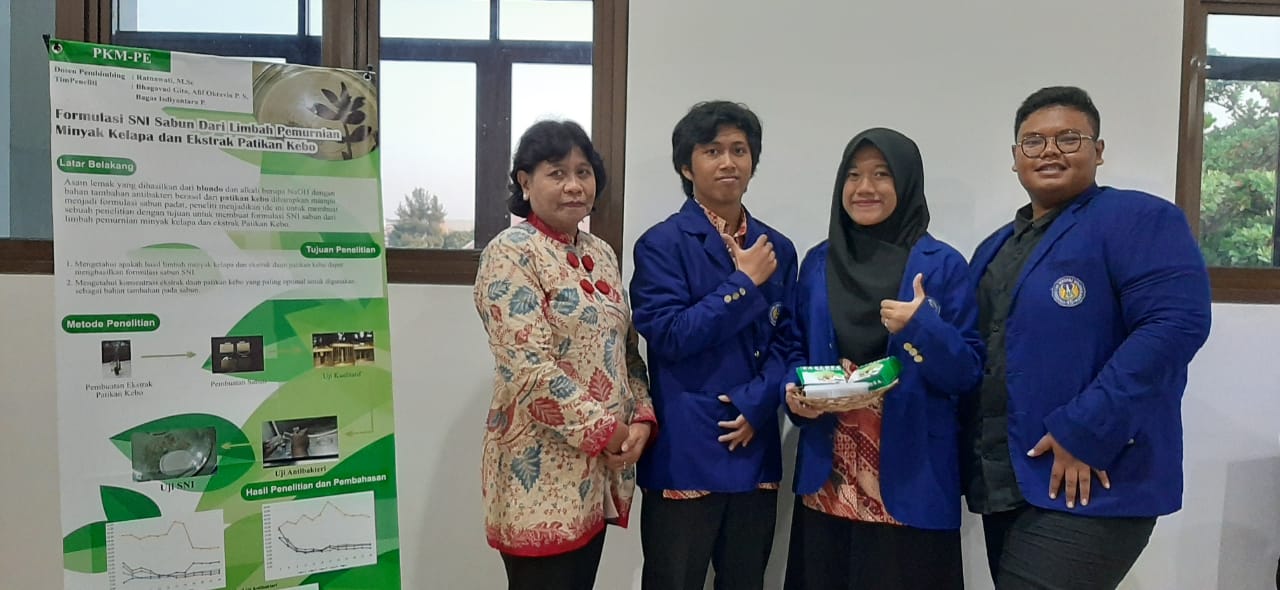You are here
SOAP FROM COCONUT OIL PURIFICATION WASTE AND EXTRACT PURE KEBO

Coconut oil production produces by-products (blondo) which producers no longer use. Blondo apparently still has quite a lot of coconut oil. Coconut oil itself functions not only for cooking but the use of natural coconut oil is used for the skin, various beauty products such as soap, creams, and lotions.
The various roles of coconut oil in helping to care for the skin include moisturizing dry skin, treating skin infections, preventing exfoliation, preventing the appearance of wrinkled skin, and even being able to tighten the skin. Whereas pulp, or blondo is one source of vegetable protein which also functions as protein synthesis. That way the main function of proteins will work well for the body one of them the skin. The protein content is useful as a supply of nutrients that function to moisturize and coat the surface of the skin to make it more smooth and supple.
From these problems gave ideas for UNY Bhagavad Gita students from Chemistry study program, Afif Oktavia Putri Sakti (Physics Education), and Bagas Isdiyantara Putra (Biology) with supervisor Ratnawati, M.Sc., utilizing blondo into skin health products namely as material to make natural soap derived from environmentally friendly ingredients, safe and also good for skin health.
Bhagavad Gita explained, fatty acids produced from blondo and alkali in the form of Sodium hydroxide (NaOH) with antibacterial additives derived from pato kebo are able to become a formulation of solid soap. With the cold process method, it takes two to four weeks to pass the saponification process to produce solid soap that is ready to use.
"The research involves making extraction of kebo patikan leaves, then making soap from coconut oil purification waste, followed by standardized solid soap test SNI: 3532: 2016. After that the antibacterial activity test was carried out by the Kirby Bauer method.
Gita added, from the SNI Test that has been carried out, all soaps meet the requirements for total fat which is above the minimum value, also has a value in the insoluble material in ethanol, unsaturated fat and also free fatty acids below the maximum value. While the optimal concentration of Patikan kebo leaf extract to be used as an additive to soap is 2%. (witono)
Sistem Informasi
Kontak Kami
Program Studi Biologi
(Gedung Baru FMIPA lt III depan Masjid Mujahidin Karangmalang)
FMIPA Universitas Negeri Yogyakarta
Kampus Karangmalang Yogyakarta 55281
email : biologi@uny.ac.id
Copyright © 2026,

